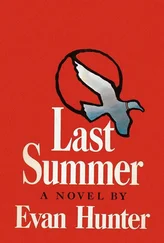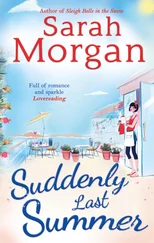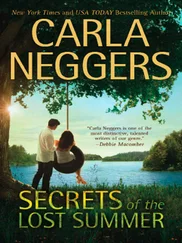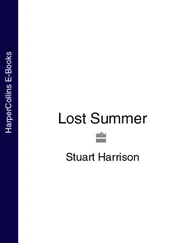We drive through downtown. It has finally become easier to navigate the nucleus of the city. The big blocks that barricaded streets, dividing the police from the people, have come down. Road obstructions have been cleared. The square is open again. We pass Mohamed Mahmoud Street, and immediately I think of betrayal. Not the betrayal of my father’s generation, the one of defeat, but rather the betrayal of the Brotherhood and police, colluding in clashes one November three years ago. Dozens were killed. A friend was raped in the process. Another had both arms broken. At the morgue piles of young men had phone numbers scrawled on their arms. When I asked, someone told me they were the numbers for home, their mothers’ numbers. They had left their houses knowing they might not return. Dido and I weren’t talking at the time, and I scanned that morgue, terrified he might be there too, piled among the rest. My memories of crossing that street, of university, of my paralysis in the face of the city, have been overwritten. Then overwritten again. The scars of our most recent history are everywhere. I have to dig, consciously project myself back into an imagined past as I sit here now, writing, to recall going there with Baba. It was on the same street corner where Baba saw the Israeli jets that I first saw the square full, first experienced tear gas, saw my first dead body, shot from behind. I think of Uncle constantly and the conversations we had. I imagine that if he were still alive and I told him now that I wish I could preserve the older memories, erase what they have been replaced by, he would tell me that to be a witness to history is a burden for the chosen. Others live day by day with no glimpse of anything remarkable, he would say, not even the pink sunsets when they come and color the city in its entirety, because how can you take pleasure in the sunset when it marks the end of your day and the total sum of tips you have earned, which is likely hardly enough. I imagine he would tell me what he had many times before, that what I have lived is an extraordinary gift, not something to be squandered. Some days I still just want to erase it all, shake off the shadow of disappointment. The second defeat, our second Naksa . I write this in a notebook and circle it many times.
The taxi turns and crosses onto the bridge with the lions. A year ago I never knew what to expect when I crossed that line at the end of the bridge towards the square. We anticipated, always, that something might erupt. Clashes. We checked the news before we went downtown. Before we went anywhere. Friends, family, checked on us by phone each hour. Remember? H asks me one day. I didn’t.
We veer into the tree-lined side street where the Cairo Tower stands, famously built by Nasser using CIA bribe money to be the tallest structure in the city. At the hospital I walk towards the back garden and a barebones shed. The clinic looks better suited for a rural setting, much like the army shacks one sees crossing the Sinai desert, looking like abandoned relics from a past war. A woman at the front desk is eating a white cheese sandwich in fino bread. Another is on her phone. She is sharing a recipe for kunafa . The secret is taking it out of the oven ten minutes before it is ready. Then you add the syrup and let it cook for ten more. Exactly. Yes. Most add the syrup at the end. She shakes her head. I stand over them, waiting. I shift from one leg to the other. I look, trying to focus my stare, will them to turn to me. The sandwich is consumed. She wipes her mouth with toilet paper from a roll on her desk. Gathers the newspaper and crumbs. Scrunches them into a ball with one hand. Tilts her hips and with her buttocks pushes her chair back. Its legs screech against the tile floor. She pauses and takes a breath, then leans her wrists against her thighs and pushes herself up, still, to my surprise, chewing. Her eyeglasses slide to the tip of her nose. Eventually I’m asked what I’m here for. Dr. Zaki. Do you have an appointment? I don’t see your name here. He told you to come? What time did he tell you to come? You spoke to him personally. What’s your name again? What time is your appointment? What number did you call him on? So you called him on his own number? Show me. Sit down.
I sit.
A Sudanese family of seven walks in. Their littlest boy comes straight up to me. Puts his hand on my thigh and climbs up onto my lap. He looks to be two. He puts his palms on my cheeks and smiles. The buzzer sounds, and I’m told to go . I lift and put him down. He holds on to my thigh. His mother tells him off . He follows me, then stops before the turn of the corner, where sight of his mother would be lost. I peer into Dr. Zaki’s office. It is a cubicle large enough for two chairs and a desk. The walls are plastic. A cloud of smoke fills the room. I decipher his outline, pear-shaped, with rolls. I knock. Piles of papers surround him. An ashtray rests precariously on the edge of his desk by his belly. A cigarette is in his mouth. Another, lit, is in the ashtray. He seems to alternate between the two. He notices me. Come , he says. Sit. I hold my breath and take a seat, trying not to inhale. I feel the smoke seep into my clothes, hair. A computer from 1986 is on his desk, swallowing most of it. I wonder if it works. He stands up. His belly rolls over and rests far below his waist. Two buttons have popped. He puts a cigarette in his mouth, scuffles sideways, peers into my face. I look at his feet. He is in fabric bedroom slippers. He tries to exhale at an angle, but the smoke comes down between us. He gestures with his hand to push it away, then exhales again. He goes back to his desk, scribbles on a paper. Says, Take this cream twice a day. Come back in a month. What is it for, what is this from? Is it curable? Will it go away? I’ve been to many doctors already. How long will it take? He snaps that it will take time. He then sighs, deeply. I apologize. Take the paper. Walk out backwards, pulling the door behind me.
The taxi driver connects two wires under his steering wheel and restarts the car with a jump. We drive around the curve of the island and past the club. I look into the fence, the hedge, at the construction. A billboard counts down the days. The army has taken a third more of the club and given it to the youth . We no longer, those of us who pay, have access to the horse track. Much of the golf course is gone, turned into football fields. The running track is being turned over to cyclists. The president is photographed every weekend cycling through the city. They print his photograph on the front page of Al-Ahram.
—
At home I listen to Fairuz. She sings of the winds of change on the coast, Shat Iskandaria, and of falling in love in the summer. In the kitchen I try to open the freezer door. It’s old, and the rubber padding is like suction. It bursts open and I’m thrust back. I take out an ice tray. Bang it on the sink counter. Take a handblown glass from the ledge by the stove. Put four cubes of ice into it. I make my ice with tap water but fill the glass with mineral water from a bottle. I take my pile of newspapers onto the terrace and sit on one of the old bamboo chairs that used to belong to Granny. My eyes drift through the mango trees. I think of the last time I was at that same hospital, two summers ago. A friend had called at ten p.m. I hadn’t picked up. She texted. It’s urgent . I called back. A mutual friend had been stabbed, multiple times, could I come? They found him in a pool of blood. Left for dead in his apartment. The paramedics say he had been there at least twenty-four hours. He had burn marks too, as if electrocuted. I had run out, grabbing just my keys, stopping a taxi, asking him to hurry. At the hospital I sprinted into the ER. There was commotion. I looked around. I saw familiar faces, but nobody registered as someone I knew. Our friend was on a stretcher. I leaned over him and peered. Stood in silence for a long time. I had looked at him, our friend, with his cloud-white face stained with clots of blood, his hair like clay, his body covered in sheets, motionless like a mummy, and wondered how he could survive, and even if he did, what kind of life he might have, if it would be worth it. We were in the hospital for hours and through the night until dawn as we waited, for news, a clue, a doctor who could tell us something, anything. They rolled him into a corridor and said the doctor was coming. An hour passed. Two. He was still in the corridor behind doors with signs warning about hygiene. A young man walked in, dressed in street clothes. He looked at our friend, pulled up his sheet, put it down again, and walked on. Eventually they rolled him out. We were still waiting for the doctor.
Читать дальше
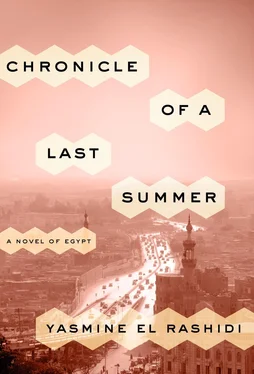
![Маргарет Миллар - Rose's Last Summer [= The Lively Corpse]](/books/384369/margaret-millar-rose-s-last-summer-the-lively-c-thumb.webp)
